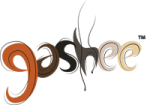Published on April 19, 2018. Last Updated on July 17, 2021.
Peppermint (Mentha aquatic) is a hybrid mint between watermint and spearmint. It originated from Europe and the Middle East. But now it grows all around the world. The peppermint oil is generated by steam distillation using the fresh parts of the flowering plant. It can be used for beauty, cleaning, and health purposes. Through controlled studies, scientists are now looking into the potential of using peppermint oil for the hair.
Is Peppermint Oil Good For Hair? Researchers Take a Closer Look
Today, natural treatments are readily available for many types of health problems. But do these options actually work? Or is their allure due to being seen as pure, pristine, and plant-based? Research can provide more objective information on these types of questions.
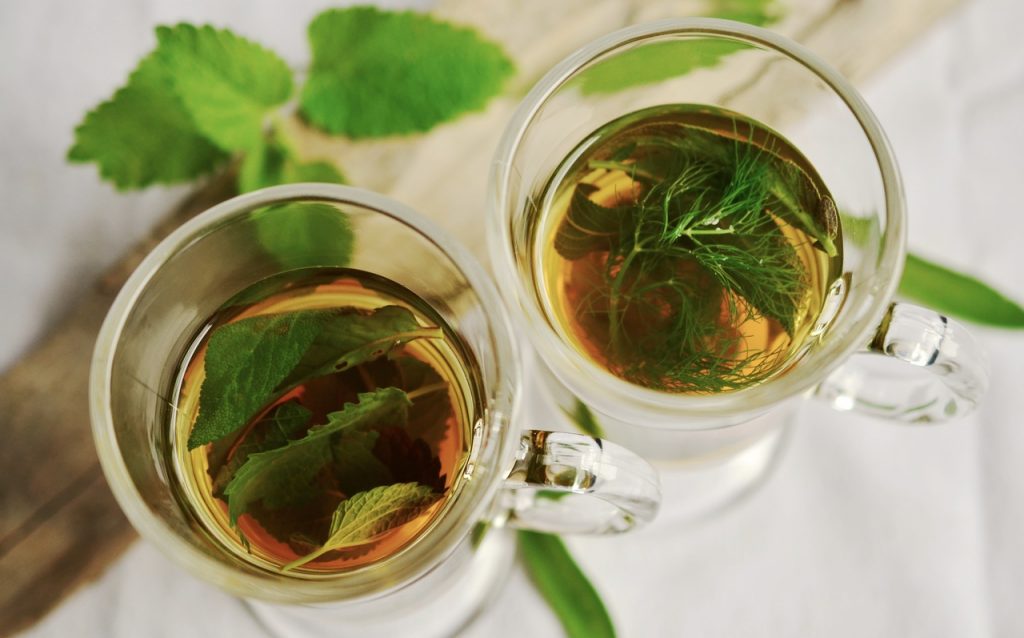
Peppermint Hair Loss Study
Does Peppermint Oil Stimulate Hair Growth by Blocking 5a-Reductase?
5a-reductase is an enzyme that converts testosterone into several smaller byproducts. One of these is DHT which is harmful to the hair follicles in people with genetic baldness. By blocking the enzyme, it is possible to lower DHT levels in the blood.
Researchers wanted to see if peppermint oil could work for this purpose (2). They measured the release of sebum in test subjects to see if they could support or disconfirm this idea.
Generally, the body produces more sebum when high levels of DHT stimulate the sebaceous oil glands. Therefore, observing sebum secretion is a commonly used to see how well a 5a reductase blocker works.
The researchers found that topically applied peppermint oil reduced the amount of sebum released in test subjects. They concluded that it acts as a 5a-reductase inhibitor.
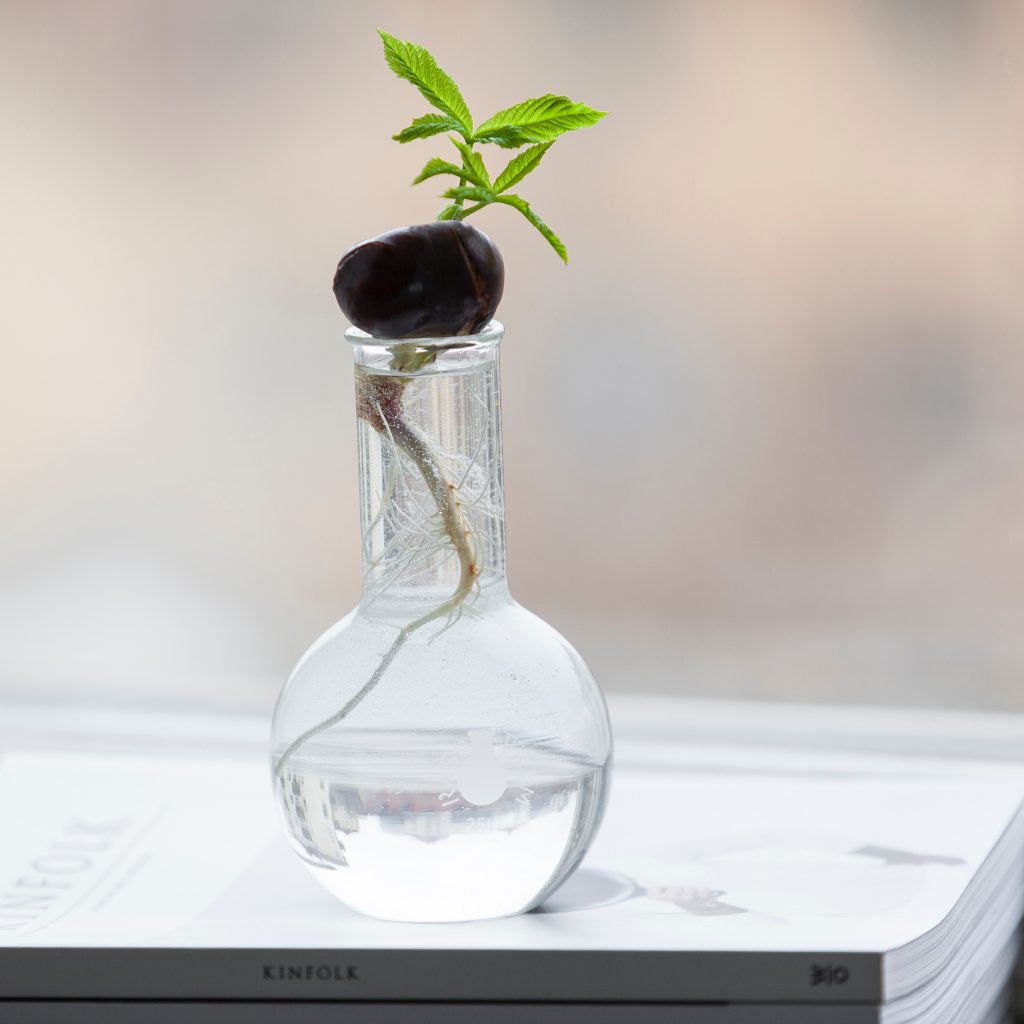
Peppermint Oil for the Hair Follicles Might Improve Skin Penetration
As noted earlier, peppermint oil can repel lice (which can cause hair loss) and block 5a-reductase to minimize DHT in the bloodstream. Based on one safety report (3), the menthol constituent can also improve the penetration of other chemicals, a third property that may help with hair loss conditions. Enhancing the skin’s receptivity would help boost the potency of such ingredients intended to target the hair follicle and improve growth.
Besides menthol, other main constituents of peppermint oil can be toxic in high concentrations. These include:
- menthone
- pulegone
- menthofuran
- Limone
The safety report also specified 1% as the safe concentration limit of pulegone. Therefore, peppermint oil can be used as an ingredient in topical cosmetic products for the hair as long as the concentration of pulegone does not exceed this percentage.
A Study on Peppermint Oil for the Hair to Repel Lice
Head Lice – General Information
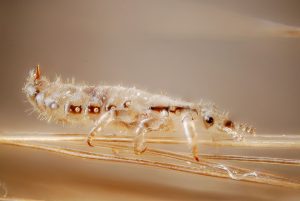
Lice can infect the hair and scalp and lead to hair loss. These parasites will bite the skin and feed off the blood. Their saliva contains a toxin that keeps the wounds open to help provide ongoing sustenance. The scalp constantly itches as the immune system tries to get rid of it. During this inflammatory process, numerous defense cells attack the toxin and the follicles. Severe hair shedding may then occur. It is worth exploring the possibility of using a natural extract such as peppermint oil for the hair as a solution.
Head lice infections are becoming a growing, worldwide problem, especially among primary school children. Many topical over-the-counter products have been developed to address this issue. But manufactured chemicals are not as effective as they were before. Lice have now developed a stronger resistance to these synthetics.
Peppermint Oil for the Hair – Looking at Plant Extracts for Long-Term Solutions
One alternative is to use plant extracts instead. The active agents found in these sources consist of more than one type of molecule, not just one. This makes it harder to form resistance to them.
In the fight against lice, many experts argue that the right natural extracts should repel the parasites. This is a much better long-term solution. Killing the lice would only work temporarily before they return.
In one study (1), researchers tested the effects of different combinations of plant-based oils. They also mixed DEET (N, N-diethyl-3-methylbenzamide), a common synthetic ingredient in insect repellants, with various natural oils.
The researchers found that a blend of tea tree oil and peppermint oil outperformed all the other test groups.
Possible Side Effects
When peppermint oil is used in small doses, there are no risks for most adults. Although the possibility is little, potential side effects may include heartburn, allergic reactions, and anal burning — according to WebMD.
However, due to the lack of evidence surrounding its safety during pregnancy, pregnant and breastfeeding women should avoid these products.
Safety Profile
The Environmental Working Group scored a rating of 4 for peppermint oil, indicating the possibility of raising allergic reactions for some. The oil is also recommended to use with limitations in terms of concentration and amount. Nonetheless, it is determined safe to use.
Hair Growth Products with Peppermint
If you’re interested in peppermint in your beauty routine to stimulate hair growth, Dr.UGo Gashee has two products using this key ingredient. Our hair lotion and pomade are carefully formulated to improve your hair growth journey using a combination of all-natural ingredients. Click the image below to shop now!
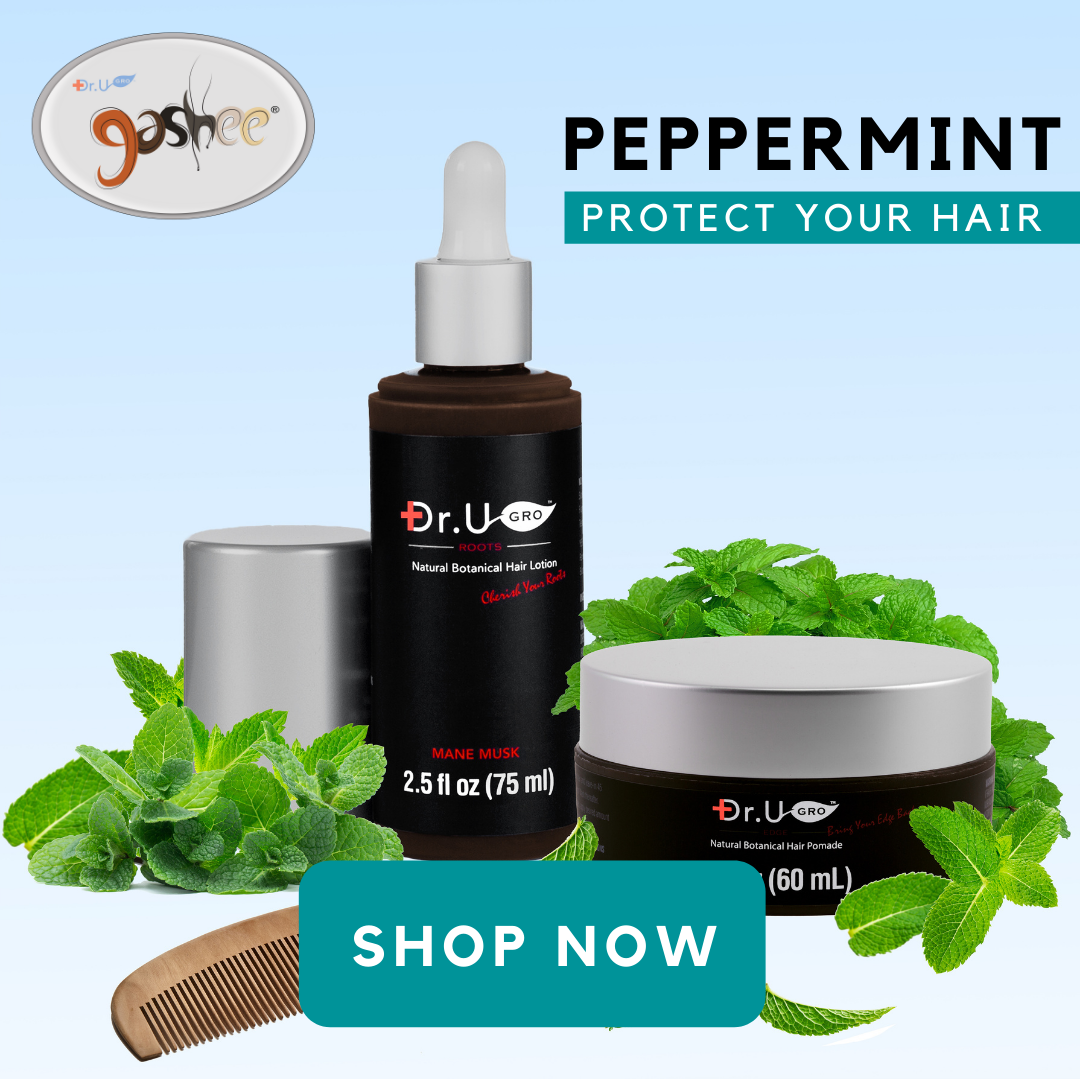
VIDEO: Gashee Pomade Revitalizes Hair
Diane grew frustrated when she noticed the hair on the top and around her head drastically becoming sparse. Though she sought out and attempted revitalizing her hair with numerous pharmaceutical medications, nothing seemed to work — until she found Dr.UGro Gashee. Within months, she saw a striking difference as her hair grew thicker and stronger. Learn more about her experience by watching the video below.
Frequently Asked Questions – Peppermint Oil For Hair Growth
How can I use peppermint oil for the scalp?
Peppermint oil can help stimulate the scalp’s blood supply. If you are interested in purchasing a bottle of this essential oil, here are a couple of ways you can use it.
Peppermint shampoo for the hair
Add a few drops of oil to your regular shampoo. Specifically, 4-6 drops are best for every ounce of your shampoo or conditioner. Gently rub it on your scalp and leave it on for a few minutes before you rinse the mixture off.
Peppermint oil for the scalp massage:
For a more intensive treatment, create an oil mixture with 2-3 drops of peppermint oil, one spoon of coconut oil, or jojoba oil. Rub the herbal oil mixture to your scalp and leave it on at least for 30 minutes before shampooing the excess and rinsing it out of your hair.
Will peppermint oil for the hair actually improve growth?
Peppermint oil may help reverse hair loss caused by parasites, such as lice. As the research suggests, it acts as a repellant, causing these tiny insects to stay away. Studies also imply that peppermint oil can block 5a-reductase. However, this ingredient should be formulated professionally into a product with the right concentration. Buying peppermint oil strictly for hair growth will most likely not work.
References:
- Canyon DV, Speare R.A comparison of botanical and synthetic substances commonly used to prevent head lice (Pediculus humanus var. capitis) infestation. Int J Dermatol 2007;46(4):422-6. 85.
- Uchiumi Y, Susumo T, Kenji M. Activity of herbal extracts on the control of sebum secretion. [in Japanese] Frag J 2004;32(3):53-7. 86.
- Nair B. Final report on the safety assessment of Mentha Piperita (Peppermint) Oil, Mentha Piperita (Peppermint) Leaf Extract. Mentha Piperita. (Peppermint) Leaf, and Mentha Piperita (Peppermint) Leaf. Water. Int J Toxicol 2001;20 Suppl 3:61-73.
